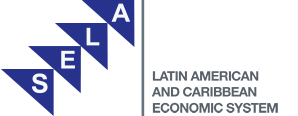ELECTRONIC COMMERCE IN PRACTICE AS A TOOL TO PROMOTE TRADE FACILITATION
May
02 to 28, 2017
DESCRIPTION OF THE CONTENT OF THE MODULES
Module 1 – Fundamentals of e-commerce and e-business
- Introduction to different concepts and technology
- Review of different models
- Market trends in Latin America and the Caribbean
This module has been designed to attain the following educational goals:
- Understand the difference between e-commerce and e-business
- Gain knowledge about the different business models related to e-commerce
- Assess the advantages and disadvantages of e-business
- Identify the different development phases of e-commerce
- Define the opportunities related to the development of infrastructure: fixed, mobile, access to Internet (national and international)
- Analyze the potential economic impact of e-commerce in Latin America and the Caribbean
Module 2 – E-government
- Definition, models, barriers and opportunities of e-government
- Adoption of e-government in Latin America and the Caribbean and implementation of best practices
- Case studies
This module has been designed to attain the following learning goals:
- Be able to define the scope of e-government
- Gain knowledge about the main obstacles to the development of e-government
- Identify the benefits associated with the implementation of e-government
- Understand the impact of e-government on e-commerce
- Assess the progress of e-government in Latin America and the Caribbean
Module 3 – Regulatory framework
- Public policies, laws and regulation
- Regulatory issues
- Information security, data protection and computer-related crimes
This module has been designed to attain the following learning goals:
- Identify key technological components of e-commerce
- Recognize the different regulatory issues arising from e-commerce
- Identify public policy considerations that support regulatory responses of e-commerce
- Raise awareness about the legal aspects arising from e-commerce
- Raise awareness about the existing laws and regulations and the way they are applied to e-commerce activities
- Define the aspects related to consumer protection in e-commerce
- Recognize various fiscal aspects of e-commerce and trade facilitation
- Raise awareness about the main aspects of intellectual property in e-commerce
- Recognize the link between e-commerce, data protection and information security, as well as the relevance of regulation on the subject
Module 4 – ICT tools
- Web technology behind the growth of e-commerce
- Components of e-commerce platforms
- Presentation of the main solutions of “free software”
This module has been designed to attain the following learning goals:
- Describe how Internet and web services support e-commerce
- Identify how technology can create opportunities for selling online
- Know the main features of e-commerce applications
- Understand the main benefits and limitations of “free software” solutions
Module 5 – Payment
- The classification of the various payment solutions
- The most popular payment solutions in Latin America and the Caribbean
- Review the most important aspects and present the main conclusions
This module has been designed to comply with the following learning goals:
- Identify the basic functions of online payments
- Analyze the use of credit cards in e-commerce
- Be able to classify and differentiate, and understand how the different electronic payment solutions operate
- Understand the history and future of e-money through the review of the different payment methods
- Analyze the main payment methods in Latin America and the Caribbean
Module 6 – Logistics
- Introduction to the different concepts and technology
- Review of the different models
- Trends of the market in Latin America and the Caribbean
This module has been designed to comply with the following learning goals:
- Gain knowledge about the parts of the distribution chain
- Identify the integration of logistics and shipping in information systems of e-commerce
- Be able to measure the impact of logistics on customer service
- Identify the challenges of the “last kilometre” of shipping
- Assess the benefits and disadvantages of insourcing and outsourcing of logistics
- Identify the different tasks that are carried out in the logistic centres
Module 7 – Marketing
- Market research
- Marketing strategy
- Branding
- Advertising
- Digital marketing
- Positioning
- Social networks
- Mobile marketing
This module has been designed to comply with the following learning goals:
- Identify what traditional marketing and digital marketing are
- Define how each tool works
- Develop an online marketing plan
- Identify the performance indicators of an e-commerce web site
- Assess the results of an advertising campaign in order to be able to make improvements








